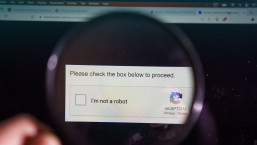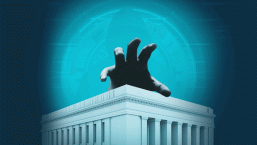Bletchley Park is set to make history once again by inviting top analytical minds to work and study at the legendary location. Things are a little different today though. The world they are preparing a new generation of cybersecurity codebreakers for has changed remarkably since the Second World War …
20th-century game-changers
The sprawling Buckinghamshire estate populated by decaying huts is famous for having played a crucial role in the Allied Forces’ fight against Hitler. The wartime base for the Government Code and Cypher School (GCHQ) was deliberately chosen because it had good transport links to Oxford and Cambridge universities, whose brightest students it recruited.
Its most famous alumnus is the mathematician Alan Turing, whose invention of the Bombe machine proved so crucial in decrypting the Enigma code, and is credited with shortening the war by two years and saving countless lives. Turing sadly died at the age of 41, decades before his work - and that of Bletchley more widely (dubbed ‘the best kept secret in Britain’) - was revealed in all its heroic glory to the public.
Britain’s best kept secret

Turing, widely seen as the father of modern computing and AI, was at Bletchley when the first large-scale computers, Colossus Mark 1 and 2, designed by telephone engineer Tommy Flowers to solve a problem posed by mathematician Max Newman, were being developed. The necessity for number crunching on a mass scale in the race to crack Enigma would eventually lead to great strides in computer technology.
More than 10,000 people, a mixture of top secret military personnel, Wrens (Women’s Royal Naval Service), linguists and civilian volunteers, and mathematical ‘professor types’ - some of whom were recruited via the famously fiendish crossword puzzle placed in the Telegraph - contributed to the war effort at Bletchley, with only a very few party to the true importance of their herculean team effort.
For decades, while no one knew of its true history, Bletchley Park was left to languish, falling into disrepair and out of use. Since the 1970s, when what had gone on there became public knowledge, it has become a mecca for tourists. A symbol of what collective brainpower can achieve.
Future-proofing Bletchley
Finally a new plan for Bletchley, one that does justice to the role it took on so deftly in the 20th century, has been formed. A new school to train the next generation of cybersecurity experts will be developed on the site - next to the historical attraction that you can still visit.
The National College of Cyber Security intends to recruit teenagers between 16 and 19 with students working towards a potential variety of qualifications including A-levels or Extended Project Qualification. Nearly half of the curriculum will be devoted to cybersecurity - with extra focus on maths, physics, computer science or economics.
Finally, tuition will be free and places will be offered to the “most gifted prodigies” according to Qufaro, a private consortium of cyber-industry experts and advocates driving and funding the not-for-profit project.
Back on the front line
At a time when cybersecurity is at the top of the agenda in politics, and when businesses are still reeling from last year’s IoT DDoS attacks, the arrival of a school set to provide future protection against criminal activity of this kind is critical. Cybercrime is estimated to cost the international economy up to $480 billion per year and a recent KPMG report revealed that 90% of businesses were impacted by cyber incidents in the last year.
“The explosion of the internet means that devices that you wouldn't think of as a potential target area are really very easy to compromise,” Oscar O'Connor, chief technology officer for Qufaro, told press last year.
But it isn’t just big business the new Bletchley Park coders will be protecting. Much like the cryptanalysts of the Second World War, they will be expected to be on the frontline of a cyber war with the UK’s international enemies.
“We have to find new ways of thinking about the implications of what it is we want to do with the technology.”
“We have to find new ways of thinking about the implications of what it is we want to do with the technology,” O'Connor went on to say.
“There are people out there, crime networks and nation states, who spend a great deal of money trying to figure out ways to use the stuff we buy for perfectly legitimate purposes to subvert us, the organizations we work with and the countries we live in.”
The school, set to open in September 2018, will recruit around 100 students in its first year through a mixture of talent spotting and entrance exams - perhaps they’ll place another crossword in a newspaper and see what clever bods can complete it?
There is currently a recruitment shortage in cybersecurity. Beyond the clear educational need for better cybersecurity knowledge, is an acknowledgement that both businesses and the government need to invest in pre-empting this shortage in the future.
‘We felt Bletchley Park was a natural home for a cybersecurity college because it's building on the innovation and the work that took place in the Second World War, bringing it up to date and making it relevant again,” said Tim Reynolds, Deputy Chairman of Trustees at the National Museum of Computing and a director of Qufaro.
Cybercriminals should not rest easy.




